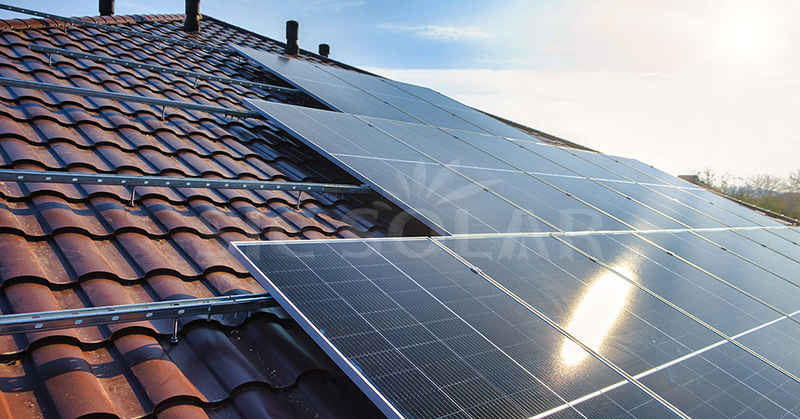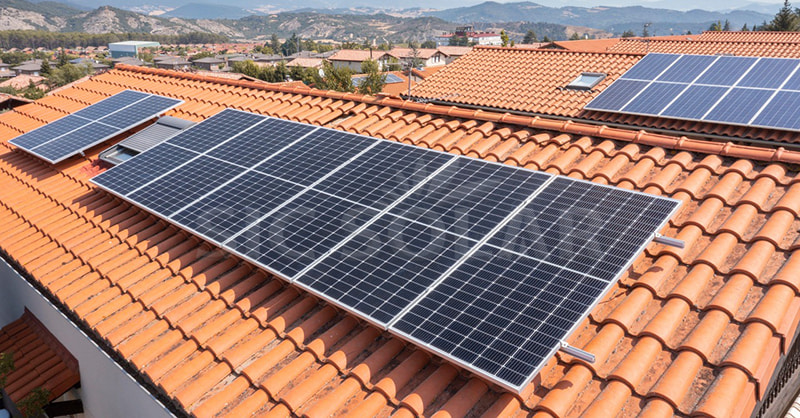How durable is the pitched roof solar installation system?
Installing solar panels on a pitched roof is one of the most common and effective ways to harness solar energy. However, many homeowners and businesses considering this option often wonder: How durable is a pitched roof solar installation system?
1. The Lifespan of a Pitched Roof Solar Installation System
A well-designed and properly installed pitched roof solar system can last for 25 to 30 years or more, making it a long-term investment. The durability of the system depends on several key factors, including:
- The quality of the solar mounting system
- The materials used in the roof structure
- The effects of weather conditions
- Proper installation techniques
A durable solar mounting system ensures that the panels remain securely attached to the roof while withstanding environmental factors such as wind, rain, snow, and temperature fluctuations.
2. Factors That Affect the Durability of Pitched Roof Solar Systems A. High-Quality Mounting Systems
The solar mounting system is a critical component that determines the durability of the entire installation. A strong and corrosion-resistant mounting system ensures the panels stay secure over decades of operation.
SIC Solar offers high-quality aluminum and stainless steel mounting solutions that are designed for long-term performance. These materials are resistant to rust and degradation, even in harsh environments.
B. Roof Compatibility and Strength
A pitched roof’s structural integrity plays a crucial role in supporting a solar installation. Before installation, it’s essential to assess whether the roof is in good condition and capable of bearing the additional load of the solar panels and mounting system.
Proper load distribution is necessary to prevent undue stress on the roof. SIC Solar mounting solutions are designed to evenly distribute weight to avoid damaging the roof structure.
C. Resistance to Weather Conditions
Pitched roof solar installations must endure various weather conditions, including:
- Strong Winds: Properly anchored mounting brackets prevent panels from shifting or detaching during storms.
- Heavy Snowfall: Durable solar racking systems can handle snow loads without compromising the integrity of the roof.
- Rain and Moisture: Waterproof sealing techniques help protect the roof from leaks caused by mounting penetrations.
SIC Solar mounting systems include weather-resistant coatings and secure fastening methods to ensure long-term performance under different climatic conditions.
D. Proper Installation Techniques
A well-installed solar system is much more durable than one that is improperly secured. Key installation factors include:
- Using the right brackets, rails, and fasteners for the roof type
- Ensuring the panels are angled correctly to maximize sun exposure while minimizing wind resistance
- Waterproofing around mounting points to prevent leaks
SIC Solar easy-to-install mounting solutions simplify the process while ensuring long-term stability.
3. Maintenance and Longevity
While pitched roof solar systems are designed for long-term durability, periodic maintenance can further enhance their lifespan. Some essential maintenance tips include:
- Regular Inspections: Checking the mounting system and fasteners for any signs of wear or corrosion.
- Cleaning the Panels: Removing dirt and debris to maintain energy efficiency.
- Checking for Roof Damage: Ensuring that the roof remains in good condition and addressing any leaks or structural issues promptly.
Thanks to high-quality materials and robust engineering, SIC Solar pitched roof mounting systems require minimal maintenance, reducing long-term costs and effort.
4. Why Choose SIC Solar for Durable Pitched Roof Solar Installations?
SIC Solar specializes in manufacturing and supplying premium photovoltaic mounting systems designed to withstand extreme weather conditions and provide long-term reliability. Here’s why SIC Solar solutions stand out:
Corrosion-Resistant Materials: Made from high-strength aluminum and stainless steel for long-lasting durability.
Strong Wind and Snow Load Resistance: Engineered to handle various environmental challenges.
Easy Installation: Designed for quick and secure attachment, reducing labor time and costs.
Roof Protection Features: Waterproofing solutions to prevent leaks and damage.
By choosing SIC Solar high-performance mounting solutions, you ensure that your pitched roof solar installation remains secure, efficient, and durable for decades.
A well-installed pitched roof solar system is built to last for decades with minimal maintenance. Its durability depends on the quality of the mounting system, the strength of the roof, resistance to weather conditions, and proper installation techniques.
SIC Solar advanced solar mounting solutions provide a secure, weather-resistant, and long-lasting foundation for pitched roof solar panels, ensuring maximum performance and reliability.
If you’re considering a pitched roof solar installation, investing in high-quality mounting systems like those from SIC Solar is the key to long-term success!

